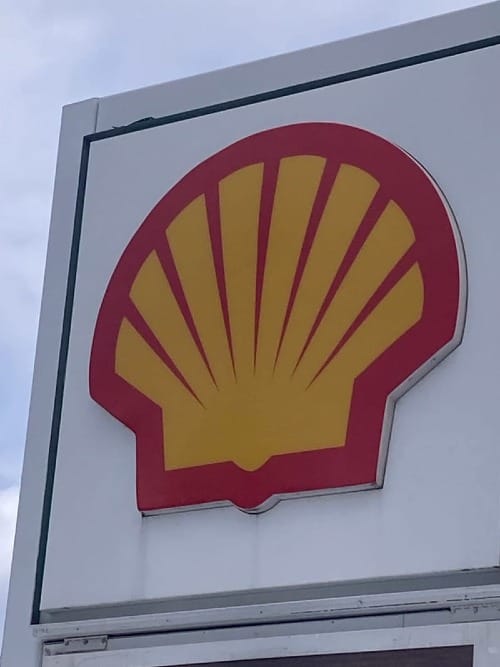Landmark Climate Case Against Shell Goes To Dutch Supreme Court

Article co-published with One Earth Now
When a Dutch court ruled in 2021 that Shell must reduce CO2 emissions across its supply chain by 45% by 2030, climate campaigners hailed it as a “historic verdict” and a “monumental victory for our planet.” The decision marked the first time that a court had held a major fossil fuel company accountable for contributing to the climate crisis and first time it had ordered a corporation to reduce its emissions accordingly. Yet in November an appeals court overturned the verdict, finding that it could not sufficiently determine a specific emissions reduction obligation that should apply to an individual company like Shell. But this landmark climate court case is not yet over.
On February 12, Milieudefensie – the Dutch environmental group that brought the case – announced it would lodge a final appeal to the Supreme Court in the Netherlands. This step, called cassation, involves the court reviewing whether the appeals court’s ruling was adequately reasoned; no new facts or evidence will be considered. Milieudefensie is looking to build upon what it sees as strong points in the appellate decision and to highlight where it says the court fell short – namely, in failing to hold Shell accountable to a measurable and concrete emissions reduction percentage.
“Shell has a duty to reduce its emissions, but the court failed to say exactly how much, and therefore it’s missing the teeth to actually make Shell, one of the biggest polluters in the world, act,” Milieudefensie’s Sjoukje van Oosterhout said during a panel discussion on Thursday.
In its November 12 decision, the Court of Appeal said that “protection from dangerous climate change is a human right” and that “companies like Shell, which contribute significantly to the climate problem and have it within their power to contribute to combating it, have an obligation to limit CO2 emissions.” Big oil companies such as Shell, therefore, have a legal duty to do their part in mitigating dangerous warming and reducing their emissions, according to the court.
But without setting a standard or level by which to hold Shell accountable, the court cannot ensure that Shell will adhere to its obligation, Milieudefensie contends.
“The court ruled that Shell must reduce its emissions, but did not specify by which percentage. Such a percentage is essential,” said Donald Pols, director of Milieudefensie, adding that “a reduction obligation on Shell is needed to protect people from dangerous climate change.”
In responding to the Court of Appeal decision in November, Shell CEO Wael Sawan said the company was “pleased” with the outcome quashing the 2021 verdict. “We are making good progress in our strategy to deliver more value with less emissions,” he added.
Analyses have shown, however, that the expansion plans and activities of major oil and gas companies are incompatible with the goals of the Paris Agreement for curbing dangerous global heating. “We’ve seen Shell continue on that same path of approving new oil and gas extraction, which our research shows all of it is incompatible with the Paris Agreement,” said Kelly Trout, research co-director at Oil Change International. She noted that Shell “has no actual target in its own plans for reducing its Scope 3 emissions, the emissions caused by burning the oil and gas that they sell to their customers,” which make up over 90% of its company-wide emissions.
Van Oosterhout said the court’s ruling makes it clear that Shell “cannot hide behind states or consumers.” The Court of Appeal did, however, buy into Shell’s argument that other companies could make up the difference if Shell had to scale back its trading business to comply with an emissions reduction obligation. “It could not be established that an obligation on Shell to reduce its scope 3 emissions by a certain percentage is effective,” the court wrote in its ruling.
That is one point that Milieudefensie hopes the Supreme Court can correct. Van Oosterhout said this “drug dealer” defense, that other actors would fill the supply gap if Shell is forced to reduce, does not make sense and should not apply. “Shell has their own responsibility to act,” she said.
Milieudefensie says it will be talking with Shell and the Supreme Court on a timeline and proceedings in the appeal. A final ruling from the court could come in 2026, van Oosterhout said.
In the meantime, Milieudefensie is starting another corporate climate accountability case against ING, the largest bank in the Netherlands, over its continued financing of fossil fuels. “We feel that the findings of the court of appeal [in the Shell case] give us a very strong basis to continue that case,” said van Oosterhout. The complaint against ING is expected to be filed very soon. Milieudefensie may take legal action against other companies too. “We also have our eye on some other major polluters,” van Oosterhout said during Thursday’s panel event. She added that climate litigation is necessary at this point given the lack of political action in reining in corporate polluters and adequately confronting the climate emergency.
“Governments are failing. We have a governance gap. And that’s why we have to take these sorts of measures.”


